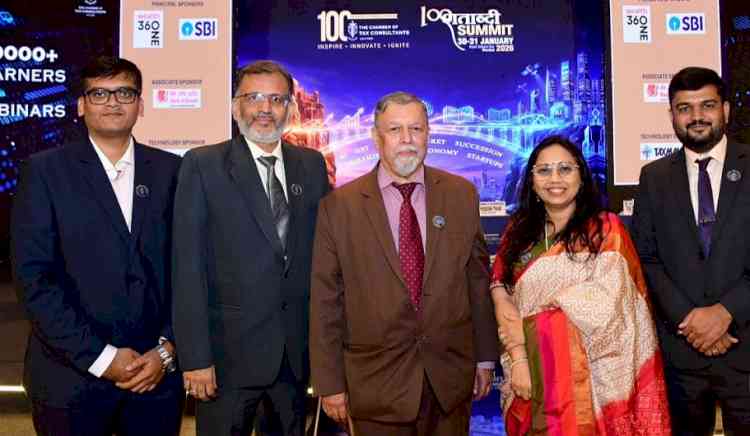MSME Credit Demand at an All-Time High While Delinquencies Decline
Insights from the latest edition of TransUnion CIBIL-SIDBI MSME Pulse Report show that with lenders being able to supply timely credit to resilient MSMEs, the sector is on an accelerated growth trajectory.

Chandigarh/Mumbai, March 23, 2023: Insights from the latest edition of TransUnion CIBIL-SIDBI MSME Pulse Report show that with lenders being able to supply timely credit to resilient MSMEs, the sector is on an accelerated growth trajectory. The report also indicates benchmark credit growth in the micro segment owing to an improvement in lender confidence. The measures on formalization of MSMEs and adoption of digital platforms by lenders has enabled them to access granular data on enterprises and improved their confidence for lending, especially to the micro1 segment of MSMEs, informs the report.
Data from the report shows that credit demand (measured in terms of credit inquiry volumes) is correlated to the improvement in business activity and grew at 1.29 times year-over-year (YoY) in the quarter ending September 2022, while credit supply remained stable with disbursement growing by 24% YoY. Micro, small and medium enterprises grew at 54%, 23% and 8% in disbursements YoY, respectively.
Overall, MSME credit exposure is at ₹ 22.9 lakh crores as of September 2022, reflecting a YoY growth rate of 10.6%. Bank type wide analysis of credit exposure shows that public sector banks hold ₹ 7.9 lakh crore, private banks hold ₹ 10.1 lakh crore, and non-banking financial companies (NBFCs) account for ₹ 3.1 lakh crore of share. There are ~77 lakh total number of live MSME borrowers growing at 11% YoY. Small segment enterprises comprised the highest proportion in the MSME credit book at ₹ 9.5 lakh crores, while micro and medium enterprises hold ₹ 5.8 lakh crores and ₹ 7.6 lakh crores, respectively.
MSME lending continues to be concentrated in states that have higher industrialization. The top ten states based on current outstanding MSME lending balances are Maharashtra, Gujarat, Tamil Nadu, Uttar Pradesh, Delhi, Karnataka, Rajasthan, West Bengal, Telangana & Haryana. These top ten states constituted 72% of the MSME outstanding balance as of September 2022. Of these ten states, Gujarat and Haryana had the highest growth rate of 15% and 14%, respectively. On the other hand, Rajasthan and Gujarat had the lowest delinquency rate of 1.8% and 1.85% respectively.
Speaking on the findings of this edition of the MSME Pulse, Sivasubramanian Ramann, Chairman and Managing Director, SIDBI, said: “The progressive reforms introduced by the government for MSME sector resurgence have borne fruit as reflected in the vigorous business activity and improved credit uptake by enterprises across all the segments. We would encourage the credit industry to duly support this increasing demand by providing timely access to credit opportunities for MSMEs, thereby contributing to the sustained growth of the sector and the economy to meet the government’s USD 5 trillion economy objective.”
Adding to this, the Managing Director and CEO of TransUnion CIBIL, Rajesh Kumar, said: “Demand for credit from the MSME sector is at an all-time high and supply by the credit industry remains stable while delinquencies have declined. These findings prove that the credit industry has been able to wield the power of insights and data analytics to identify deserving MSMEs and drive access to credit opportunities astutely across business sectors and geographies. The rapid pace of innovations driven by the government, regulator, and the lending ecosystem has significantly fortified the MSME sector to continue its high growth trajectory. These innovations have provided capabilities for triangulating the power of financial, income and trade information so that credit institutions can get a unified view of the business entity, enabling improved risk differentiation for underwriting MSME loans.”



 City Air News
City Air News 









